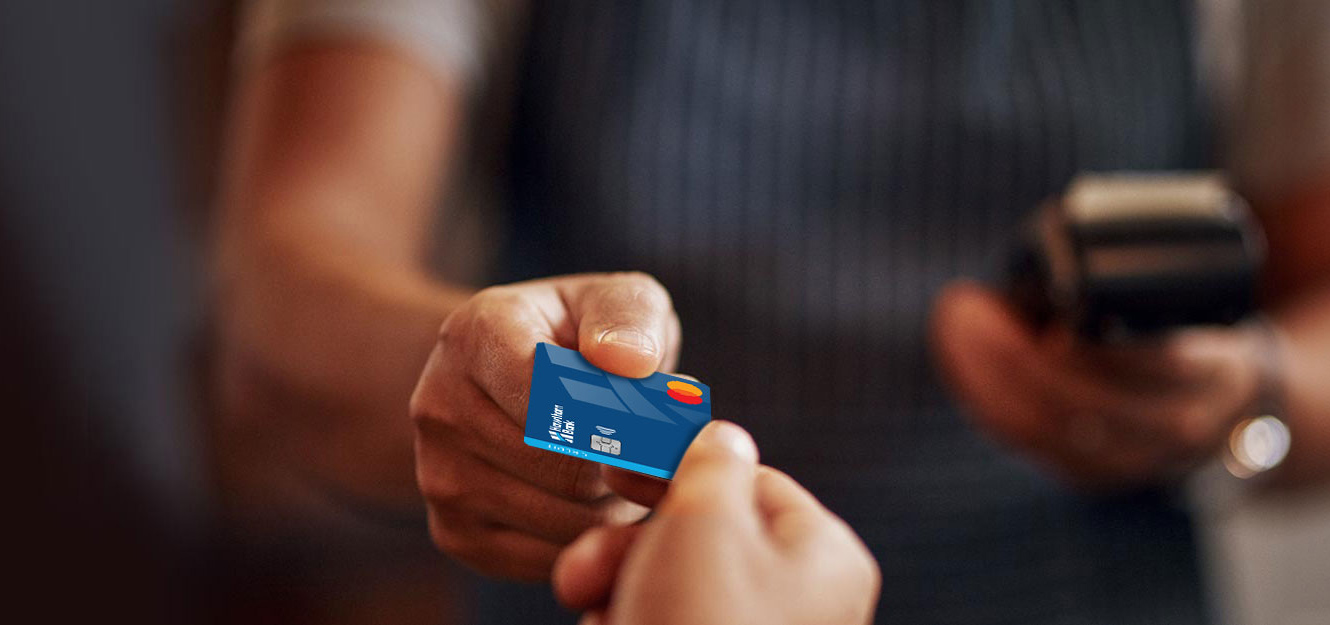Do you think you might be a victim of identity theft? Here are a few signs that require immediate attention:
• Unexpected credit card or account statements
• Denials of credit for no apparent reason
• Calls or letters about purchases you did not make
• Charges on your financial statements that you don't recognize
If you suspect your identity has been stolen, place a “Fraud Alert” on your credit reports. The alert tells creditors to follow certain procedures before they open new accounts in your name or make changes to your existing accounts. These three nationwide consumer reporting companies have toll-free numbers for placing an initial 90-day fraud alert; a call to one company is sufficient:
• Experian: 1-888-EXPERIAN (397-3742)
• TransUnion: 1-800-680-7289
• Equifax: 1-800-525-6285
Protecting Yourself
Follow these simple steps to make your financial data more secure:
-
Shred financial documents before you discard them.
-
Don't carry your Social Security card or write your Social Security number on a check.
-
Don't give out personal information on the phone, through the mail, over the Internet or via text messaging on your cell phone, unless you know who you are dealing with.
-
Never click on links sent in unsolicited emails.
-
Use firewalls, anti-spyware, and anti-virus software to protect your home computer; keep them up-to-date.
-
Don't use an obvious password like your birth date, your mother's maiden name, or the last four digits of your Social Security number.
-
Check your credit report. Visit www.AnnualCreditReport.com or call 1-877-322-8228, a service created by these three companies, to order your free annual credit reports. If you see accounts you don't recognize or inaccurate information, contact the company. To find out how to correct credit errors, visit ftc.gov/idtheft.
 Did You Know? Did You Know?Hawthorn Bank's Loyalty Checking account offers IDProtect® service, identity theft expense reimbursement coverage and identity theft resolution services.
Other scams and red flags to watch out for:
- Never trust someone who says you won money in a lottery or sweepstakes but have to pay a fee to get it. In fact, the FTC says, “legitimate sweepstakes don’t make you pay a fee or buy something to enter or improve your chances of winning — that includes paying taxes, shipping and handling charges, or processing fees to get your prize.”
- Scammers may change the phone number that appears on your caller ID to look like a legitimate business, so don’t assume that it’s real. When in doubt, hang up, look up the listed number (not the number the caller gives you), and call back.
- It is likely a scam if the offer involves you wiring money, putting money on a gift card, or depositing a check and then sending money to cover “fees.”
Scams can vary widely, the scammer will try to impersonate someone in a position of authority, or build a romantic online relationship. Always be suspicious if you receive a call, email or text message from someone claiming to be:
- A COURT OFFICIAL, indicating that you failed to appear for jury duty and need to pay a fine or you will be arrested.
- The POLICE, saying you’ll be arrested, fined or deported if you don’t pay taxes or some other debt right away.
- SOCIAL SECURITY, claiming that your benefits have been suspended.
- The IRS, saying you owe back taxes, there is a problem with your return, or they need to verify information.
- Your BANK, claiming they need to verify personal information before they can send you a new card. (A bank will never call to ask you for personal financial information.)
- A friendly STRANGER that reaches out through social media or a dating app to slowly build a relationship, and then turns to investment opportunities (often crypto).
What do I do if I've been scammed?
If you think you or someone you know has been a victim of a scam, reach out for help right away. The FTC offers a helpful guide for consumers who may have been scammed.
And being a victim of a scam doesn't just include making a payment to an illegitimate business. If you gave a scammer remote access to your computer or phone, even just for a minute, or revealed personal information or passwords, you may be vulnerable.
|



 Did You Know?
Did You Know?